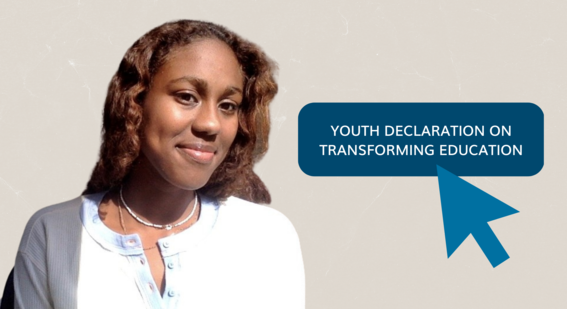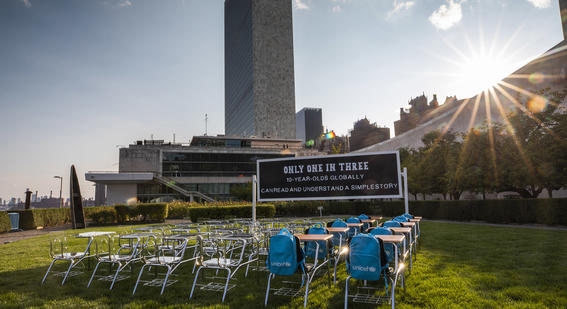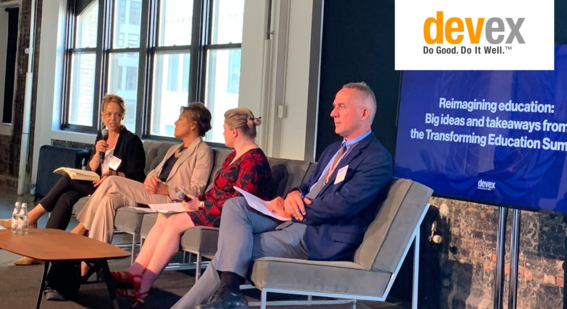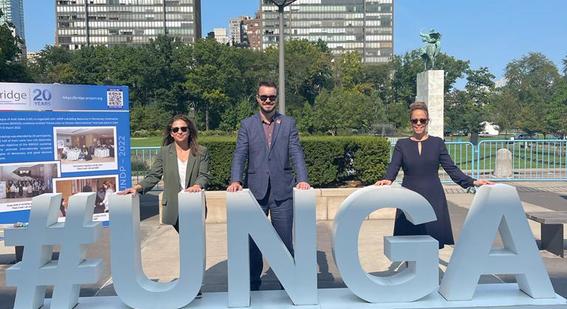Learning from the students
One of the big takeaways of the Transforming Education Summit in New York last September was the power of the youth voice and how we can involve young people more in both conversation and action to change education systems.
Here, UNICEF Youth Mobilisation Laboratory delegate Raina Ivanova shares her reflections on the event and the further questions it raised for her.
The views contained in this blog are those of the author and do not necessarily reflect the views or positions of Cambridge Partnership for Education.
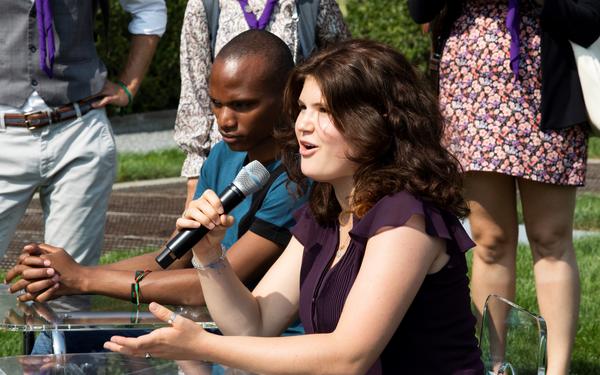
What is done without us is done against us
This statement by Yasmine Mireille, a youth leader from Côte d'Ivoire, especially struck me during my participation in the 2022 Transforming Education Summit. When we talk about transforming the education system it has to be done alongside students and young people. Thus, I was very excited to participate in the Transforming Education Summit as a part of the first UNICEF Youth Mobilization Lab, which took place from 16-21 September in New York City.
As a former member of UNICEF Germany’s National Youth Council I, alongside my fellow member Sakiye, participated in the Youth Mobilization Lab to represent UNICEF Germany. The main objective of the Lab was to connect youth activists from around the world and allow them to share experiences, learn from each other, and take part in the first day of the Summit.
Decolonizing education
I found that decolonizing education was one of the central talking points on the first day of the Summit which I was positively surprised by. At school, I experienced a Eurocentric education system that did not teach in depth about colonialism and its present-day impacts. Yet, colonialism is connected to many subjects I had in school like history, geography, philosophy, and English. Failing to educate students on colonialism deprives them of the ability to recognize the colonial narrative within subject topics. More broadly, many of the social issues we face today can be traced back to colonial influences. If we want students to know and care about these issues and develop a more broad and socially conscious perspective, we need to decolonize the way in which they learn.
Informal education
Another aspect that greatly contributes to broadening perspectives is informal education. Education does not only occur in a classroom! As highlighted by many youth leaders at the Summit, it happens through activism, volunteering, personal project planning, and much more. Once we let go of the idea that this has to happen in a school setting, we can allow students to see learning as a more self-guided and empowering process instead of an obligation. Inherently, it is crucial to have structural youth participation in all the places where the transformation of education is discussed. Many young people don’t enjoy going to school and don’t learn much in class, and it is not because they are lazy. It is because our education system is largely based on dull reproduction of knowledge and academic performance.
Realising student participation
Personally, I had a similar experience at school, which is why I joined my state’s student school board. Our school curriculum gets fundamentally revised every 10 years. This year when the new draft of the curriculum was published, the student school board had the opportunity to give their opinion on its contents and methods for the first time. The student board worked on a position paper for multiple months, consulting different students and adult professionals. We found that the new school curriculum increases academic pressure on students and fails to recognize all the important skills schools should be teaching instead. Through more mandatory written exams, less consideration of oral participation in class, more subtopics within subjects, and less flexibility in the learning process, it is reverting to obsolete teaching and learning structures. The student school board worked tirelessly to ensure that its suggestions got implemented and personally I would have liked to see authorities involving us earlier on in the development of the curriculum and implementing our suggestions more significantly.
At the Summit, many high-level government officials highlighted the importance of increasing youth participation, but youth participation cannot be realized if the young people aren’t listened to. Letting young people speak on panels for a few minutes is not actually listening to them! Therefore, I am eager to see in what way the Youth Declaration and its demands will play into the outcome of the Summit. After all, if we want to transform the education system in a way that fosters an inclusive and sustainable way of learning for all students it has to be created alongside the young people that are most affected by it. Naturally, all of this cannot be realized at one summit. However, I hope that in the future we can come out of summits like this with more concrete action items that follow the talking. I also hope that these summits become more accessible to the public allowing more teachers and students to be at the center as they are the fundament of our education system and the key agents for transforming education.
About the author
Raina Ivanova is an 18-year-old climate justice and child rights advocate from Germany. She is one of 16 Petitioners in the Children vs. Climate Crisis Petition to the UN Committee on the Rights of the Child and a former Member of UNICEF Germany’s National Youth Council. Before graduating from secondary school in July 2022, she was part of her State's Student School Board. Raina believes that climate education is a central tool in solving the climate crisis, so she founded and led the climate club at her school, which worked on educating students about climate change and making the school more environmentally friendly.

